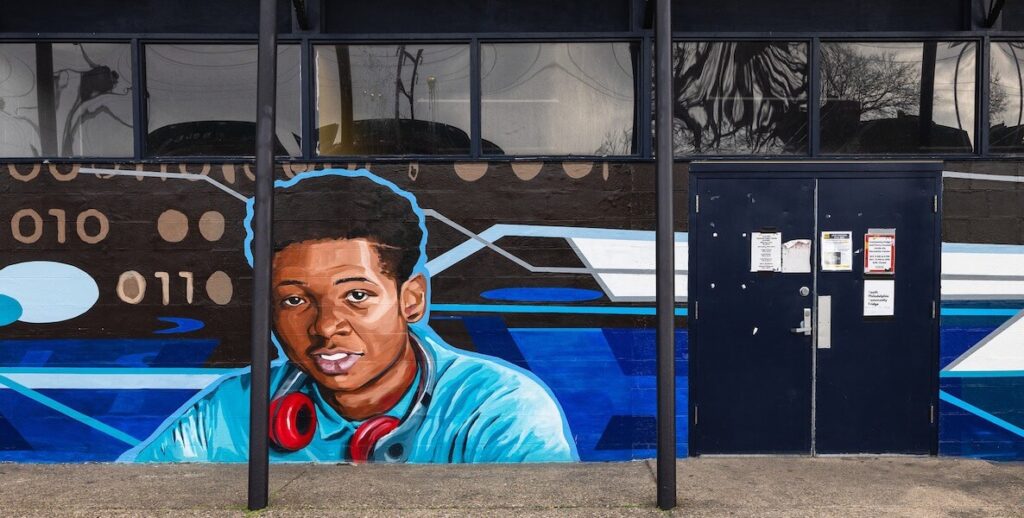There is a mental health crisis among Black males in this country, and social workers are at the forefront of dealing with it.
As a licensed Black male social worker in Philadelphia, I have walked a path that intimately connects me with the struggles and triumphs of the community I serve. In this role, I’ve witnessed the untapped potential of Black boys and men who are yearning for support, understanding, and the chance to flourish.
Yet, despite the undeniable resilience within us, the statistics paint a sobering picture — a picture that beckons us to transform the landscape of mental health care for our community.
In the realm of licensed clinical social workers — the vanguards of mental health — there’s a troubling gap.
Not only is it hard for Black males to receive adequate mental health services, it is equally challenging to become a licensed clinical social worker, as new data highlights “glaring disparities in pass rates among racial groups, particularly for Black test takers.”
Our field is tasked with upholding the pillars of empathy, compassion, and inclusivity, but a closer look reveals disparities that cannot be ignored. As we stand at this crossroads, I feel it’s my duty to highlight the pressing issue at hand: the insufficient resources and support available for Black men and boys.
A long history of disparity
History is a harsh teacher, revealing how deeply rooted these disparities truly are.
In 1851, physician Samuel A. Cartwright introduced the concept of “drapetomania,” a fictitious ailment that deemed the desire for freedom among enslaved individuals as an “uncontrollable or insane impulsion to wander.” This sinister distortion of human longing laid the groundwork for the unjust medicalization of Black identity — a precedent that still echoes in our society’s understanding of mental health today.
Shift forward to the late 20th century, a time when the term ADHD entered our lexicon in 1987. Astonishingly, this was the same era that witnessed the onset of mass incarceration for Black and Latino male fathers. Coincidence or consequence?
Mental health for Black men has been used against them to perpetuate violent systems of oppression. The connection between systemic inequalities and mental health challenges cannot be ignored.
The 1960s, a period of racial turbulence and fervent protests for equality, also marked a distressing trend. Diagnoses of schizophrenia among Black men surged, prompting us to question whether the mental health field has been complicit in perpetuating injustice rather than alleviating it. The intertwining of social and mental health disparities creates a complex web, and it’s a web we must untangle for the sake of our community’s well-being.
Recent years have uncovered another crisis — a crisis that resonates deeply with the tumultuous times we face.
The growing suicide rate among Black youth, particularly those aged 18 to 24, now stands as a haunting testament to the struggles that young Black men grapple with. The pandemic’s shadow cast a dark pall over our mental health, but it’s essential to recognize that the pain runs deeper, echoing historical traumas and systemic neglect.
The iceberg analogy
Imagine an iceberg: What’s visible above the surface pales in comparison to the enormity concealed beneath. Beneath the surface lie historical wounds, intergenerational trauma, and the weight of societal expectations.
To address this, we must create a mental health framework that acknowledges, validates, and supports the complete journey.
As professionals in social work, education, and leadership, we possess the power to effect change. My organization, Bourne Anew, empowers educators and organizations to cultivate an environment that fosters the well-being of Black boys and men.
However, this is not a mission we can accomplish alone.
I challenge every member of the social work community, every organizational leader, and every educational advocate to rise to this occasion. We must amplify the voices of Black mental health professionals who understand the nuanced needs of our community. We must strive for equity in mental health care, ensuring that resources are accessible, culturally sensitive, and trauma-informed.
This is not merely a call to action: It’s a call to reimagine and rebuild. Let’s confront the gaps in our field head-on and redefine what it means to be mental health advocates. Our history has shown the disastrous consequences of neglecting the mental well-being of Black men and boys.
It’s time for a new narrative, one that centers on healing, empowerment, and holistic support.
In the spirit of challenging the status quo, I ask you to reflect on your role. How will you contribute to the transformation of mental health care for Black men and boys? How will you be a beacon of change within your community, your profession, and your network? The time to act is now. Let us pave a path towards a brighter, more equitable future — a future where every Black individual can build confidence, explore purpose, and live a healthier, happier life.
Kenneth Bourne II is a Philadelphia-based licensed social worker, author, founder/CEO of Bourne ANEW, and a Black man.

